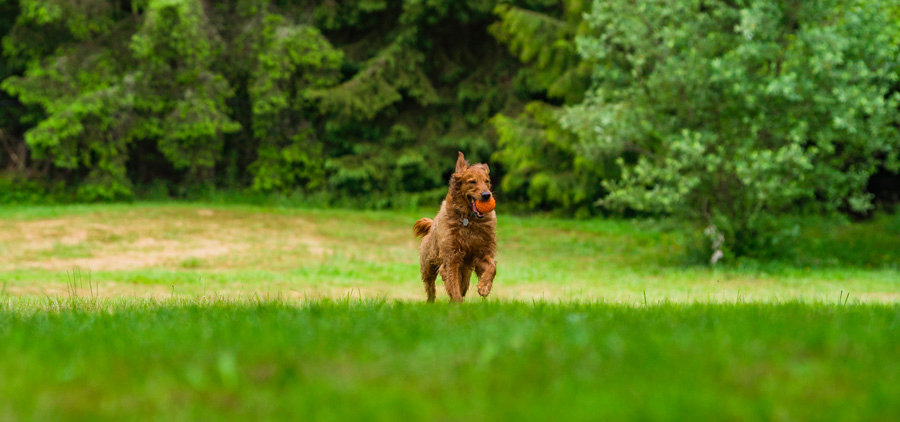Bernese Mountain Dog Guide: Traits, Care & Activities

Discover the Bernese Mountain Dog, a breed celebrated for its affectionate, loyal, and playful nature. Recognized as a large dog, Bernese Mountain Dogs have their origins in Switzerland, where they were initially bred for guarding livestock and droving work starting in the 1st century.
In this post, we share insights from nearly 100 Sniffspot Bernese Mountain Dog owners, offering practical advice for new and prospective Bernese Mountain Dog owners. Whether you’re considering adopting or rescuing a Bernese Mountain Dog or already have one, you’ll find valuable tips on how to care for and enjoy life with this affectionate breed.
“Very affectionate breed and always has the biggest personalities!” says Sniffspot user Tank. He’s right—Bernese Mountain Dogs are truly one-of-a-kind. Thinking about welcoming one of these gentle giants into your life? This guide compiles insights from nearly 100 Bernese Mountain Dog owners to give you the inside scoop on everything Berner, from their history and temperament to training tips and what daily life is really like. Let's explore!

Source: Sniffspot Community Breed Survey 2024
Bernese Mountain Dog: At a Glance
- Breed Type: Working
- Size: Large
- Life Expectancy: 7 to 10
- Healthy Weight Range: 70 to 115
- Height Range: 23 to 28
- Temperament: Affectionate, Loyal, Playful
- Coat Type: Thick double
- Color: black, white, and rust
Getting to Know the Bernese Mountain Dog
According to nearly 10,000 Sniffspot community users who shared real-world data about their Bernese Mountain Dogs, these dogs are affectionate and loyal. The Bernese Mountain Dog is also known for being very friendly and social with children and other pets.
When living with a Berner, 80% of our owners indicated that a large house with a fenced yard is ideal. Additionally, 44% of owners found that a rural or suburban area with open spaces is also acceptable. This dog is moderately trainable, often benefiting from a professional trainer. Owners say that the Bernese Mountain Dog learns best with positive reinforcement and consistent routines.
In terms of exercise, 58% of Sniffspot owners say their Bernese Mountain Dog benefits from moderate exercise every day, including 1-2 hours of activity each day, such as walks and active play sessions. The Sniffspot Berner community would recommend this dog for first-time owners.
Key Takeaways
- Bernese Mountain Dogs are affectionate companions: These gentle giants are loyal and playful, making them wonderful family pets, especially for households with children and other animals. Be prepared for their large size and grooming needs.
- Training is key for a happy Berner: While generally calm, Berners benefit from consistent training using positive reinforcement. Start early to establish good habits and address potential challenges like separation anxiety.
- A healthy Berner is a happy Berner: Be mindful of potential health issues like digestive and joint problems. Regular vet visits, a balanced diet, and a good exercise routine are essential for a long and happy life with your Berner.
History of the Bernese Mountain Dog
The Bernese Mountain Dog, or “Berner,” is a large working breed originating from the Swiss Alps. Their ancestry can be traced back to mastiff-type dogs brought by Roman soldiers around the 1st century AD, which were then bred with local Swiss dogs. Originally, these dogs were used for draft work, pulling carts, and guarding livestock on farms in Switzerland. They are one of four Swiss mountain dog breeds, distinguished by their long, thick coat that was essential for protecting them from the cold Alpine weather.
Historically, Bernese Mountain Dogs played a vital role in Swiss agricultural life. Farmers relied on them to pull heavy carts of dairy products, guard livestock, and serve as loyal companions. The breed was near extinction in the late 19th century due to industrialization, but efforts by Swiss fanciers helped revive the breed in the early 20th century. They were eventually recognized by the American Kennel Club in 1937.
Today, Bernese Mountain Dogs are cherished for their gentle, friendly nature and strong work ethic. Their calm temperament makes them excellent family pets, but they retain their working dog instincts and thrive in environments where they have tasks or regular exercise. Known for their loyalty, they are especially good with children and are deeply bonded to their families, though their relatively short lifespan is a consideration for potential owners.
Bernese Mountain Dog Temperament & Traits
- Temperament: Affectionate, Loyal, Playful
- Energy Level: Moderate
- Trainability: Moderately trainable – Learns commands with consistent training and practice.
- Grooming needs: High maintenance – Requires frequent grooming, including regular brushing, bathing, and trimming.
- Good with Kids: Very friendly and social with children
- Good with Other Pets: Very friendly with other pets
Owning a Bernese Mountain Dog: What to Expect
As a Bernese Mountain Dog owner, it’s important to know the best breed tips and what to expect from current Bernese Mountain Dog owners.

Source: Sniffspot Community Breed Research 2024
Grooming Your Bernese
Bernese Mountain Dogs require high-maintenance grooming. Owners should expect frequent grooming, including regular brushing, bathing, and trimming. These dogs have a thick double coat, which provides protection from cold mountain climates and is considered high-shedding.
To keep your Bernese Mountain Dog’s coat healthy and up to breed standards, brush at least twice a week. Among the coat types for breeds in the working group, the grooming needs of Bernese Mountain Dogs are considered high maintenance.
Exercise Requirements
Bernese Mountain Dogs require moderate activity each day. Though one of the most popular dog breeds, Berners are very athletic and high-energy.
Berners thrive with between 1-2 hours of activity each day, including walks and active play sessions. Owners report that their dogs especially love playing with squeaky toys and engaging in tug-of-war.
When large breeds like Berners don’t get sufficient exercise, they are more likely to exhibit undesirable behaviors such as separation anxiety and excessive chewing. They need consistent training, mental stimulation, and regular moderate exercise to avoid excess energy.
Feeding Your Bernese
What should you feed your Bernese Mountain Dog to keep them healthy? As a moderate energy breed, their diet is important. A reported 73% of our community feeds their Berners commercial dry kibble.
With moderate exercise, Berners should eat 4 to 6 cups of vet-recommended food to maintain a healthy weight of around 70 to 115 lbs. However, your Bernese Mountain Dog’s ideal weight and food intake depend on factors such as sex, activity level, and age.
Bernese Mountain Dog Health
The Bernese Mountain Dog breed is most prone to digestive issues (e.g., bloating, sensitive stomach) and joint problems (e.g., hip dysplasia, arthritis). A reported 56% of our Bernese Mountain Dog owners have reported digestive issues such as constipation, diarrhea, vomiting, and lack of appetite. The risk for these challenges increases as they age.
Similarly, 42% reported joint problems like arthritis, elbow dysplasia, degenerative issues, and osteosarcoma. Additionally, 24% of Bernese Mountain Dog owners have noted that their dogs struggle with ear infections caused by allergies, ear mites, or contact dermatitis — a common health concern for the breed. If you’re worried about any of these health issues, consult your Bernese Mountain Dog’s vet.
Are Bernese Mountain Dogs Friendly?
Another important consideration when adopting a Berner is whether this breed fits with your current family. How friendly are Bernese Mountain Dogs compared to other large-sized breeds?

Source: Sniffspot Community Breed Survey 2024
With moderate training, you can channel your Berner’s working instincts into an affectionate and loyal family dog. Introducing your pet to positive reinforcement (treats, praise, rewards) and maintaining consistent daily training routines early on helps them avoid undesirable behaviors like separation anxiety and excessive chewing. Our community Bernese Mountain Dog owners comment on their pet’s friendliness:
- They are totally devoted to their owners. I have had five Bernese Mountain Dogs. All are soul mates. (TE)
- Berners love their families!!! They are happiest when they are with their people! (Kathy)
- Their loyalty and affection towards their humans. 💗 (KZ)
Training Your Bernese Mountain Dog
Whether you’re adopting a Berner puppy or an adult Bernese Mountain Dog, training is a significant part of owning this large breed. Without proper training, your Berner is more likely to display undesirable behaviors such as separation anxiety and excessive chewing. Providing stimulating activities is a great first step, but this needs to be paired with the right training for your Berner.
As a working breed, Bernese Mountain Dogs benefit from praise and positive reinforcement. Here’s what our Berner community recommended based on their experience with their own dogs:
- Positive Reinforcement (87%): This includes treats, praise, rewards, and so on for positive behavior.
- Consistent Routines (53%): A consistent training routine helps your pet get comfortable with expectations.
As dogs bred for guarding livestock and droving work, Berners are considered moderately trainable and often benefit from the guidance of a professional trainer.
 Jorge Alcala on Unsplash
Jorge Alcala on UnsplashWhy Do People Love Bernese Mountain Dogs?
We asked Sniffspot Berner owners what they love most about their Bernese Mountain Dog pups, and here’s what they had to say:
- Sweet, gentle, playful—these big babies are the sweetest, cutest nanny dogs. Once past puppyhood, they are calm and easy to handle. (MJ)
- The sweet personality that wins everyone over. They’re literally gentle giants. (Katrina)
- They are very protective of the farm animals and are fun dogs. (Jae)
Challenges of Bernese Mountain Dog Ownership
Similarly, Berner owners shared some of the biggest challenges of living with their Bernese Mountain Dog:
- Very big dog with a lot of hair. Sometimes can be stubborn. (Brianan)
- STUBBORN—Not husky levels, but when a 100+ pound dog doesn’t want to get in a car or go on a walk, it can be very challenging to train around or through this. You essentially have to gently out-stubborn the dog. (Tank)
- Size—Watch out if they accidentally step on your foot; ouch! (Audrey)
Bernese Mountain Dogs: Good for First-Time Owners?

Source: Sniffspot 2024 Community Dog Breed Survey
According to 69% of our Sniffspot community, Bernese Mountain Dogs are a great choice for first-time dog owners. This is attributed to their affectionate nature and moderate exercise needs. Bernese Mountain Dog owners say it best:
- They are very protective of the farm animals and are fun dogs. (Jae)
- The protective instinct they have combined with the pure love they show to everyone. (Jordyn)
- They are totally devoted to their owners. I have had five Bernese Mountain Dogs. All have been soul mates. (TE)
Tips for Bernese Mountain Dog Owners
Luckily, our Sniffspot community is full of experienced, trustworthy Berner owners. These Bernese Mountain Dog owners share the most essential tips and advice for prospective or new dog owners:
Finding a Reputable Breeder
When you’re ready to add a Bernese Mountain Dog to your family, finding a reputable breeder is crucial. A responsible breeder prioritizes the health and temperament of their dogs above all else. They play a vital role in maintaining the integrity of the breed and ensuring happy, healthy puppies. Here’s how to find a breeder who meets these standards:
Documentation and Health History: Ask for a full multi-generational pedigree and detailed health information for the puppy’s parents and other dogs in their lineage. Transparency is key. A good breeder will openly share this information, including any potential health issues in the puppy’s family history. This gives you valuable insights into the health and longevity of your potential new family member.
Breeder Referral Programs: The Bernese Mountain Dog Club of America (BMDCA) offers a breeder referral program, connecting you with breeders who adhere to the BMDCA’s code of ethics and prioritize responsible breeding practices. Other organizations also offer similar programs, providing a valuable resource for finding reputable breeders.
Ask Questions: Don’t hesitate to ask the breeder about their experience, the health testing they perform, and their socialization practices for puppies. A responsible breeder will welcome your inquiries and provide thorough answers. This conversation helps you assess their commitment to the breed and the well-being of their dogs.
Local Breeder Directory: The BMDCA also provides a local breeder directory, listing breeders committed to the breed standard and ethical breeding practices. It can be a valuable tool for finding breeders in your area.
Avoiding Puppy Mills: Be wary of breeders who don't allow you to meet the puppy's parents or who have multiple litters available at once. These can be signs of puppy mills, which prioritize profit over the well-being of the dogs. A reputable breeder will want you to meet the parents and see the environment where the puppies are raised. They’ll also be focused on a limited number of litters to ensure adequate care and attention for each puppy.
Keep Your Bernese Stimulated
- Berners worked on farms pulling carts. They need daily activity and are extremely strong. They will require early intervention in walking properly on a leash. Use a professional trainer if needed. Plan to take them on a short walk, hike, or other adventure every day. Also, be prepared to vacuum daily! (Kathy)
- This breed needs lots of room to run and thrives best on farms. (Jae)
Grooming & Maintenance Tips
- Make sure to keep up with exercise and maintenance, including grooming and baths. (Alex)
- Be prepared for dog hair, drool, and being smooshed, but enjoy their love! (River)
Training Your Bernese
- It is imperative that you find a breeder who breeds for health and performs all the necessary tests. Check local breed clubs for breeders using Bernergarde (important breed health tracking), conduct all clearances, and run genetic tests. Avoid breeding lines with issues like DM, histo, and lymphoma. Additionally, you absolutely MUST train your dog. What’s cute at 20 lbs is not cute at 120 lbs, and early training (starting at 8 weeks) sets you and your dog up for success. Lastly, consider getting pet insurance. Most importantly, you’ll never regret choosing a Berner. It’s all worth it. (MJ)
- Consistency is key. Use positive reinforcement as they are a very sensitive breed and do not respond well to harsh punishments. (Stacey)
Breeders & Health Issues
- Do your research and find a good breeder. Get pet health insurance and a good vacuum cleaner. (Donna)
- Research the breed thoroughly and understand their health issues. Only purchase from a reputable breeder who performs health testing. (Sharon)
Creating a Safe and Enriching Environment
Safeguarding Your Home
Creating a safe and comfortable space for your Bernese Mountain Dog is paramount. Given their large size, Berners need ample room to move around. As our Sniffspot research shows, 80% of Bernese Mountain Dog owners find that a large house with a fenced yard is ideal. This provides a secure area for your Berner to play and explore without the risk of escaping. A fenced yard also offers peace of mind, knowing your dog is safe and contained. If a large house isn't feasible, consider a home with easy access to dog parks or open spaces where your Berner can stretch their legs and burn off energy.
Think about your Berner's needs when setting up your home. Keep potentially harmful substances out of reach, secure any fragile items, and ensure they have a comfortable and designated space to rest. A cozy dog bed and access to fresh water are essential. Creating a safe haven for your Berner will help them feel secure and reduce the likelihood of accidents or destructive behaviors.
Providing Mental and Physical Enrichment
Bernese Mountain Dogs are intelligent and active dogs that thrive on both physical and mental stimulation. While they're generally calm, they still need regular exercise to stay healthy and happy. Our Sniffspot research indicates that Bernese Mountain Dogs benefit from moderate exercise each day, ideally between one and two hours. This can include walks, playtime in a securely fenced area, or even a visit to a dog-friendly water park if your Berner enjoys swimming. Remember, these dogs historically worked on farms, pulling carts—they're built for activity.
Beyond physical activity, mental enrichment is crucial for a well-rounded Bernese Mountain Dog. This can be as simple as learning new tricks, playing puzzle games, or participating in dog sports like agility or obedience training. Check out our resources on dog names for inspiration! Working with a qualified dog trainer can provide structured learning and address specific behavioral needs. Providing mental stimulation prevents boredom and reinforces positive behaviors, strengthening your bond with your Berner.
A tired Berner is a happy Berner. By providing a combination of physical exercise and mental enrichment, you can help your Bernese Mountain Dog live a fulfilling and balanced life. This also minimizes the risk of behavioral issues arising from boredom or excess energy, such as excessive barking, chewing, or digging.
Frequently Asked Questions about the Bernese Mountain Dog
Bernese Mountain Dog Lifespan
The average lifespan of a Bernese Mountain Dog is typically between 7 to 10 years.
Bernese Mountain Dog Size
An adult Bernese Mountain Dog weighs between 70 to 115 pounds and stands between 23 to 28 inches tall.
Grooming Needs
Bernese Mountain Dogs require high-maintenance grooming. Regular grooming helps keep their coat healthy and manageable. They have a thick double coat, are well-suited for protection from cold mountain climates, and are considered high shedders.
To maintain your Bernese Mountain Dog’s coat, it is important to brush at least twice a week. Among working breeds, grooming for Bernese Mountain Dogs is categorized as more complex.
Exercise Needs
Bernese Mountain Dogs require moderate activity each day. Although they are one of the more popular dog breeds, Bernese Mountain Dogs are classified as moderately athletic and somewhat high-energy.
They thrive with between 1 to 2 hours of activity each day, including walks and active play sessions. Owners note that their dogs particularly enjoy playing with squeaky toys, engaging in tug-of-war, and more.
If large breeds like Bernese Mountain Dogs don’t receive enough exercise, they may develop undesirable behaviors. These dogs need ongoing training, mental stimulation, and consistent exercise to channel their energy effectively.
Bernese Mountain Dogs & Children
According to our data, Bernese Mountain Dogs are very friendly and social with children.
Bernese Mountain Dogs & Other Pets
Our research indicates that Bernese Mountain Dogs are very friendly with other pets.
Best Food for a Bernese Mountain Dog
As a moderate-energy breed, the diet of your Bernese Mountain Dog is crucial. A significant 73% of our community feeds their Bernese Mountain Dogs commercial dry kibble.
For optimal health, Bernese Mountain Dogs should consume 4 to 6 cups of vet-recommended food to maintain a healthy weight of around 70 to 115 pounds. The exact amount and type of food will depend on your dog’s sex, activity level, and age.
Common Bernese Mountain Dog Health Issues
The Bernese Mountain Dog breed is particularly prone to digestive issues such as constipation, diarrhea, vomiting, and lack of appetite, as well as joint problems including arthritis, elbow dysplasia, degenerative issues, and osteosarcoma. Our data shows that 56% of Bernese Mountain Dog owners reported digestive issues. The risk for these health issues increases with age.
Additionally, 42% of owners reported joint problems. Finally, 24% of Bernese Mountain Dog owners indicated their dog struggles with ear infections caused by allergies, ear mites, or contact dermatitis. If you have concerns about any of these health issues, consult your veterinarian.
Resources for Bernese Owners
Whether you’re a current Bernese Mountain Dog dog owner or you’re considering adopting a Berner, Sniffspot is here to lend a helping hand. Here are some of the most relevant resources for Bernese Mountain Dog owners.
- Most Popular Bernese Mountain Dog Names
- Best Dog Rescues and Shelters
- Bernese Mountain Dog Club of America
Sources:
Connecting with Other Bernese Owners
Connecting with fellow Bernese Mountain Dog owners is a fantastic resource for both new and seasoned pet parents. Sharing experiences, tips, and advice makes navigating the joys and challenges of owning this affectionate breed so much easier. The Sniffspot community is filled with passionate Bernese owners happy to share their knowledge.
According to our community, 69% of Bernese Mountain Dog owners believe this breed is a great choice for first-time dog owners. This is largely thanks to their affectionate nature and moderate exercise needs, making them suitable companions for families and individuals alike. As one owner noted, “They are totally devoted to their owners. I have had five Bernese Mountain Dogs. All have been soul mates.”
Engaging with other Bernese owners can also offer valuable insights into effective training methods. Many owners emphasize the importance of positive reinforcement and consistent routines. As one community member shared, “Consistency is key. Use positive reinforcement as they are a very sensitive breed and do not respond well to harsh punishments.” This approach not only helps with training but also strengthens the bond between you and your Berner.
Exchanging information about grooming and health is another huge benefit. Bernese Mountain Dogs require high-maintenance grooming due to their thick double coat. Many owners recommend brushing at least twice a week to maintain coat health. Discussing common health issues, such as digestive problems and joint issues, can help owners stay informed and proactive.
Ready to connect with other Bernese Mountain Dog enthusiasts? Consider joining local breed clubs or online forums. The Bernese Mountain Dog Club of America is a great resource for events, training classes, and support networks. Sharing your adventures on Sniffspot is another wonderful way to connect with other Bernese owners and discover enriching experiences for your dog.
Most recent articles

Dock Diving Dogs: Everything You Need to Know
Have you heard the buzz about dock diving lately? Dock dogs calls it the fastest-growing sport on four legs. Dock diving, or dock jumping, is a high energy aquatic activity where dogs of all breeds, shapes, and sizes launch themselves off of a raised dock into a pool of water. (Sometimes they even retrieve a toy in the air before making a splash.)

How to Train Your Dog to Ignore Other Dogs (Expert Guide)
Is your dog overly enthusiastic, maybe even a little too friendly, when they see other dogs on walks? Or perhaps their reaction is fear or aggression, making outings stressful? Learning how to train your dog to ignore other dogs is key for peaceful walks. This guide offers simple, practical advice and training techniques to help your dog master polite detachment. We'll cover everything from understanding why your dog reacts to how to train your dog to ignore other dogs when walking, so you can both enjoy relaxed strolls together.

Dog Enrichment Activities: The Ultimate Guide
Ever feel like your dog is restless or bored? They may be getting enough exercise, but still need more. That's where enrichment activities for dogs come in. Giving your dog opportunities to sniff, explore, and problem-solve can make a world of difference. Whether you have a puppy, adult, or senior dog, enriching their environment is key for their well-being. Let's explore how to add cognitive enrichment for dogs, even tailoring activities to your dog's breed with breed specific enrichment and fun enrichment games for dogs.

Dog Agility Training for Beginners: A Complete Guide
* All Sniffspot articles are reviewed by certified trainers for quality, please see bottom of article for details *

Big Dog Run Philadelphia: Top Parks & Sniffspots
Finding a great big dog run Philadelphia can be tough. So many parks are crowded or just too small. This guide simplifies your search. We're covering the best dog parks in Philly, from public favorites to private Sniffspots. Plus, we'll explore other dog-friendly things to do in Philadelphia. Let's find the perfect spot for your pup to play!

Dog Skijoring for Beginners: Gear, Training & More
Adventure is out there, and our dogs make it so much better. Ever thought about exploring the snowy trails with your furry friend through dog skijoring? It's an amazing way to combine your love for skiing with quality time spent with your pup. This guide covers everything you need to know about skijoring with dogs—from the basics and gear to training tips for a safe and fun experience. Ready to hit the slopes with your skijoring dog? Let's go!
Related articles
Top dog guides per area
Dog training guides

Dog Food Aggression: Why You Shouldn't Punish It
Does your dog ever growl when you walk by their food dish? Maybe they get possessive of treats, carrying them far away and giving you side-eye when you start to approach — or snarling at your other pets or children if they get too close.

Scent Training for Dogs: A Beginner's Guide
As almost every dog owner is aware, the nose of a dog is an amazing thing. Just as they can pick up sounds we can’t hear, their sense of smell and ability to pick up scents is well beyond ours. In fact, dogs have 40 times the number of olfactory receptors as humans.

Service Dog Training Costs: DIY vs. Pro
More than 80 million Americans rely on their service dogs to help them navigate the world. Task-trained assistance animals perform a huge range of life-changing—in many cases, life-saving—services: These dogs act as eyes for visually impaired handlers, provide mobility support, alert to seizures and blood sugar crashes, interrupt anxiety attacks, remind their people to take medications, and so much more.

How to Deal With Puppy Potty Training Regression
You thought those dreaded middle-of-the-night potty breaks were over. You were finally free from cleaning up puppy puddles. Then, suddenly, your furry friend starts having accidents again. It's frustrating, right? This puppy potty training regression is more common than you think. Don't worry; we'll help you get your pup back on track. We'll cover the common causes, offer practical solutions, and give you actionable steps to tackle this challenge together.

Dirty Dog Syndrome: Causes, Solutions, and Prevention
It's a cringe-worthy moment every dog owner dreads: your furry friend chowing down on something truly disgusting. If your dog has a penchant for poop, you're dealing with coprophagia. It's more common than you think, and thankfully, often manageable. This article explores the reasons behind dirty dog syndrome, from instinct to learned behavior. We'll also give you practical tips to help break this unpleasant habit.
Dog enrichment guides

Top 10 Dog Water Parks in the US
Do you have a water-loving dog looking to burn some energy? There are countless dog parks to visit throughout our country — but some of them become far too hot in the midday sun to be safe for your pets to play. That’s why we’ve put together a list of some of the best dog water parks throughout the United States! At these locations, your pup can frolic, splash, and swim to their heart’s content.

Best Toys for Herding Dogs: Keeping Your Pup Happy & Engaged
Herding dogs are amazing, intelligent companions. But that also means they need more than just a simple game of fetch. Finding the right toys for herding dogs is key to keeping them happy and stimulated. This article explores some of the best toys for herding dogs, including options specifically for breeds like Border Collies and Australian Shepherds. We'll help you discover the perfect herding toys for dogs to tap into their natural instincts and keep them entertained for hours.

Ultimate Guide: Dog Toys for Aggressive Chewers
Does your dog destroy every toy you give them? Is your house littered with remnants of fabric and stuffing of all different sizes? Are you tired of investing in “indestructible” toys only for your pup to still dismantle—or worse, get bored of—them in just a few days?

Daily Exercise Calculator: How Much Exercise Does Your Dog Need?
Everyone knows dogs need exercise, but how much is enough? Walks are great, but creating a truly balanced fitness plan means understanding your dog's specific needs. This post helps you develop a daily exercise calculator for your dog, considering breed, age, and lifestyle. We'll cover fun activities, understanding exercise intensity, and recognizing when your pup has had enough. Let's create a plan that keeps your dog happy and healthy!

Complete Guide To Herding With Dogs
* All Sniffspot articles are reviewed by certified trainers for quality, please see bottom of article for details *
Dog reactivity guides

Rottweiler Aggression: Truth vs. Myth
Many dogs have gotten a bad reputation over the years for being "dangerous breeds." Rottweilers are among them. Like pit bulls and other large, blocky-headed types of dogs, these powerful and beautiful animals are often assumed to be aggressive.

What Is a Reactive Dog? A Practical Guide for Owners
Does your dog suddenly transform into a barking, lunging Tasmanian devil on walks? It's stressful for both of you. If this sounds familiar, you might have a reactive dog. Understanding what is a reactive dog is the first step to calmer walks. We'll explore the common triggers and give you actionable strategies to manage and modify this behavior. Let's turn those stressful walks into enjoyable outings.

How to Socialize a Reactive Dog: A Step-by-Step Guide
Does your dog display reactivity to other pets or people? Maybe they’re a new rescue pup and are still settling into your home. Or they were sick growing up, so you missed their critical socialization period. Possibly they’ve had a bad experience after being raised as a normal puppy.

What Is a Reactive Dog? A Complete Guide
Is your dog overly excited or fearful around other dogs? Do they bark, lunge, or whine? You might have a reactive dog. Many dog owners face this challenge. Understanding what a reactive dog is is the first step to helping them. This guide explores the common causes of dog reactivity, explains what makes a dog reactive, and offers practical tips and resources. Let's work together to build a stronger bond with your dog and enjoy stress-free walks.

Best Online Dog Training for Reactive Dogs: A Practical Guide
Does your dog's reactivity make walks stressful? You're not alone. Many dog owners face similar challenges. This guide offers practical advice and support for managing reactivity, including finding the best online dog training for reactive dogs. We'll connect you with reactive dog support groups, share training tips, and explore resources like the best dog training app for reactive dogs. Let's build a stronger bond with your dog, together.
* All Sniffspot articles are reviewed by certified trainers for quality, please see bottom of article for details *
Sniffspot community guides

The State of Public Dog Parks Across the United States
From 2009 to 2020, there was a 40 percent increase in the development of public dog parks. Designated spots for canine exercise have become commonplace in every major city in North America — many pet owners won’t even consider renting an apartment that doesn’t have its own fenced-in pet area for their canine companions.

How This Family is Affording Their Dream Property Through Renting it Hourly to Dogs
Thousand Oaks, California has been a safe haven for Sniffspot host, Jen, since childhood. Having grown up in busy Santa Barbara, Jen, an introvert from an early age, would seek out solitude and serenity away from tourists attractions and droves of people visiting from elsewhere. “My grandparents own 60 acres about a 30 minute drive from here, and I grew up spending every summer and every holiday visiting them on the ranch,” Jen explained. “In Santa Barbara, we wouldn't go to the beach on the weekend because that's where everybody was, so you'd find places off the beaten path where the tourists weren't. For me, the ranch was just my happy place.”

Host Tips: Ellen K. What Makes Sniffspot Successful for Me
Ellen is the host of Country Pasture Getaway, one of Sniffspot's most popular sniff spots. She has taken the time to write up the lessons she has learned about how to be a great sniff spot host.

How this Oregon Farmer is Making a Business From Renting Her Land to Dogs
Just 20 minutes outside of the busy city of Portland, Oregon, and settled right on the banks of the Columbia River, you’ll find what countless visitors have flocked to the area in search of – mountain views, crisp, clean air, and running water for miles. What you might not expect to find, however, is a hidden oasis designed just for dogs and their people, owned and operated by a farming couple and enjoyed by visitors on two legs, and four.

Host Tips: Fran T. Providing Great Guest Service at our Spot
Fran is the host of Ranch Setting, one of Sniffspot's most popular spots. She has taken the time to write up the lessons she has learned about how to be a great Sniffspot host.
Top dog trainers in the US
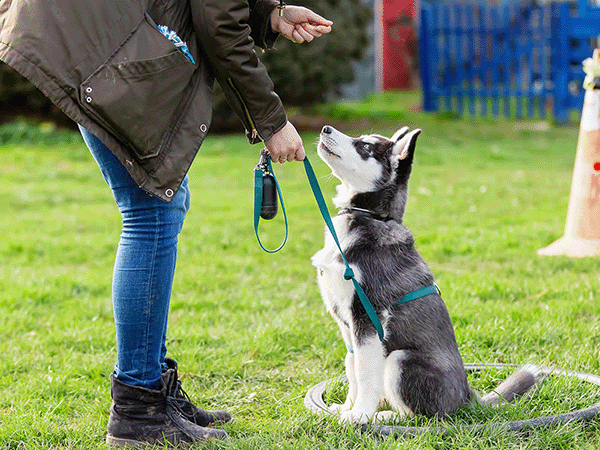
The Best Dog Trainers in the United States of 2025
This is a list of the top dog trainers in the United States, based on votes from the Sniffspot community and the general public.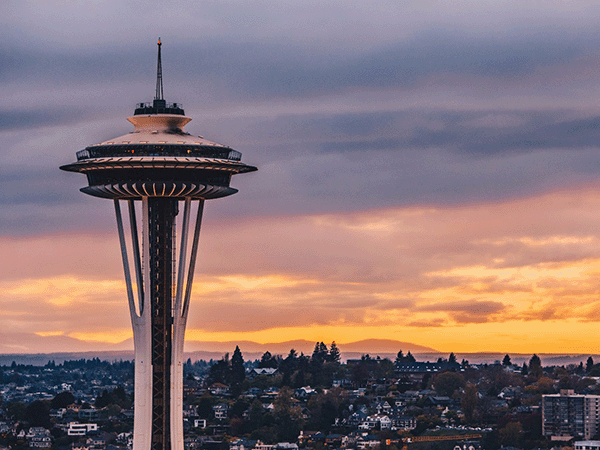
The Best Dog Trainers in Seattle, WA of 2025
This is a list of the top dog trainers in Seattle, WA, based on votes from the Sniffspot community and the general public.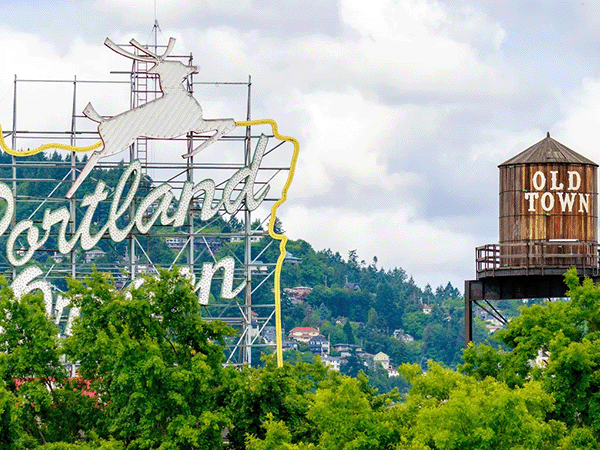
The Best Dog Trainers in Portland, OR of 2025
This is a list of the top dog trainers in Portland, OR, based on votes from the Sniffspot community and the general public.
The Best Dog Trainers in Los Angeles, CA of 2025
This is a list of the top dog trainers in Los Angeles, CA, based on votes from the Sniffspot community and the general public.
The Best Dog Trainers in New York, NY of 2025
This is a list of the top dog trainers in New York, NY, based on votes from the Sniffspot community and the general public.
City dog parks guides

Top 10 Indoor Dog Parks: A US Guide
Looking for a space to play with your dog no matter what the weather’s like outside? Look no further than our list of the best indoor dog parks in the United States! These climate-controlled spaces are growing in popularity as pet ownership increases throughout the country. As a bonus, many of them also offer dog training, boarding, grooming, or daycare services on the premises.

15 Best Dog Parks in the US: Public & Private
Searching for the best off-leash dog parks near you in the United States? Whether you're looking for public dog parks with open spaces or private, fully-fenced areas, this comprehensive guide has you covered. Discover top-rated parks across the country, plus essential tips on what to bring and what to expect for your next adventure.

Dog Parks Near Me: Las Vegas Edition
Looking for the perfect dog park near me in Las Vegas? You're in luck! This guide explores all the best options for your pup, from public dog parks to private dog parks near me on Sniffspot. We'll help you find the ideal spot for playtime, socializing, and fresh air. Plus, we'll cover essential etiquette and safety tips to ensure a happy visit for everyone. Get ready for some tail-wagging fun!

Best Sniffspot Locations: Private Dog Parks Near You
Looking for the perfect dog park? Whether you need a wide-open public space or a private, fenced-in spot, this guide will help you find the best dog parks across the US. We'll cover top-rated public parks, the perks of private dog parks, and even explore Sniffspot locations – giving your pup a safe and fun place to play. Ready to find your dog's new favorite spot? Let's go!

Sniffspot: Portland's Best Private Dog Parks
Ready to discover Portland's best dog parks? Whether you're looking for a public park or the unique experience of a private Sniffspot, this guide has you covered. We'll help you find the perfect spot for your pup, with tips on what to bring, how to prepare, and even understanding dog body language. Plus, we'll explore some top Portland dog parks, including public and Sniffspot options, so you can plan your next dog-friendly adventure in the City of Roses.
Dogs breeds

German Shepherd Dog: Breed Facts, Experience and Tips from 9K+ Owners
Discover the German Shepherd Dog, a breed celebrated for its intelligence, loyalty, and versatility. Known for its impressive size and smooth, graceful movements, German Shepherds excel in various roles, including as guide, therapy, bomb detection, and police dogs, while being a devoted family companion.

Labrador Retriever: Breed Facts, Experience and Tips from 9K+ Owners
Discover the Labrador Retriever, a breed celebrated for its playful nature, affectionate temperament, and trainability. Labradors are known for their friendly demeanor and adaptability, making them perfect family companions and versatile working dogs. As one of the most popular types of retrievers, Labs are ideal companions for various lifestyles and are recognized by the American Kennel Club (AKC) as an excellent breed for families.

Golden Retriever: Breed Facts, Experience and Tips from 9K+ Owners
Discover the Golden Retriever, a popular breed celebrated for its affectionate, playful, and trainable nature. Considered a large dog, Golden Retrievers were originally bred in Scotland for hunting and retrieving game beginning in the 1860s. Today, they're recognized by the Kennel Club and the American Kennel Club (AKC) as one of the most beloved companion dog breeds.

American Staffordshire Terrier: Your Complete Guide
Think American Staffordshire Terriers are tough? Think again. While their muscular build might intimidate some, these dogs are known for their playful and loyal personalities. This guide draws on the experience of nearly 10,000 AmStaff owners to reveal the truth about this often misunderstood breed. Want to learn more about caring for an American Staffordshire Terrier? You're in the right place.

Australian Shepherd Facts: Breed Info & Care Guide
Discover the Australian Shepherd, an AKC breed celebrated for its trainable, playful, and affectionate nature. Despite its name, the Australian Shepherd is actually a native breed to the United States, originally developed to breed on farms and ranches. Considered a medium dog, Australian Shepherds were bred for herding beginning in the 1950s. As one of the high-energy breeds, Aussies are known for their boundless energy and need for regular exercise, including aerobic exercise.
Top dog names in the US
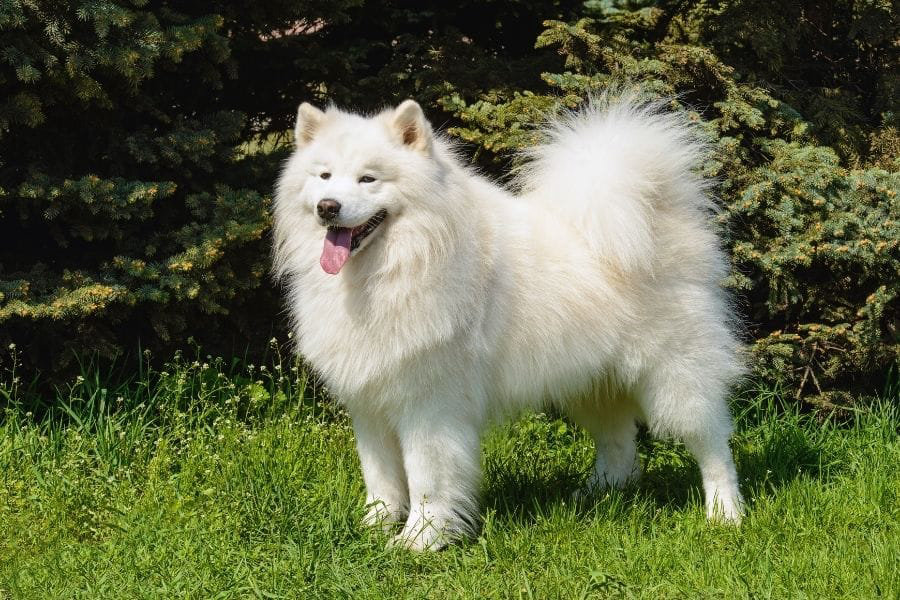
Top 1,000 Most Popular Dog Names
Looking for the perfect dog name for your new pup? We have created filterable lists of dog names from our database of hundreds of thousands of Sniffspot users. You can filter by gender, breed and state to find the most cute, unique and creative dog names.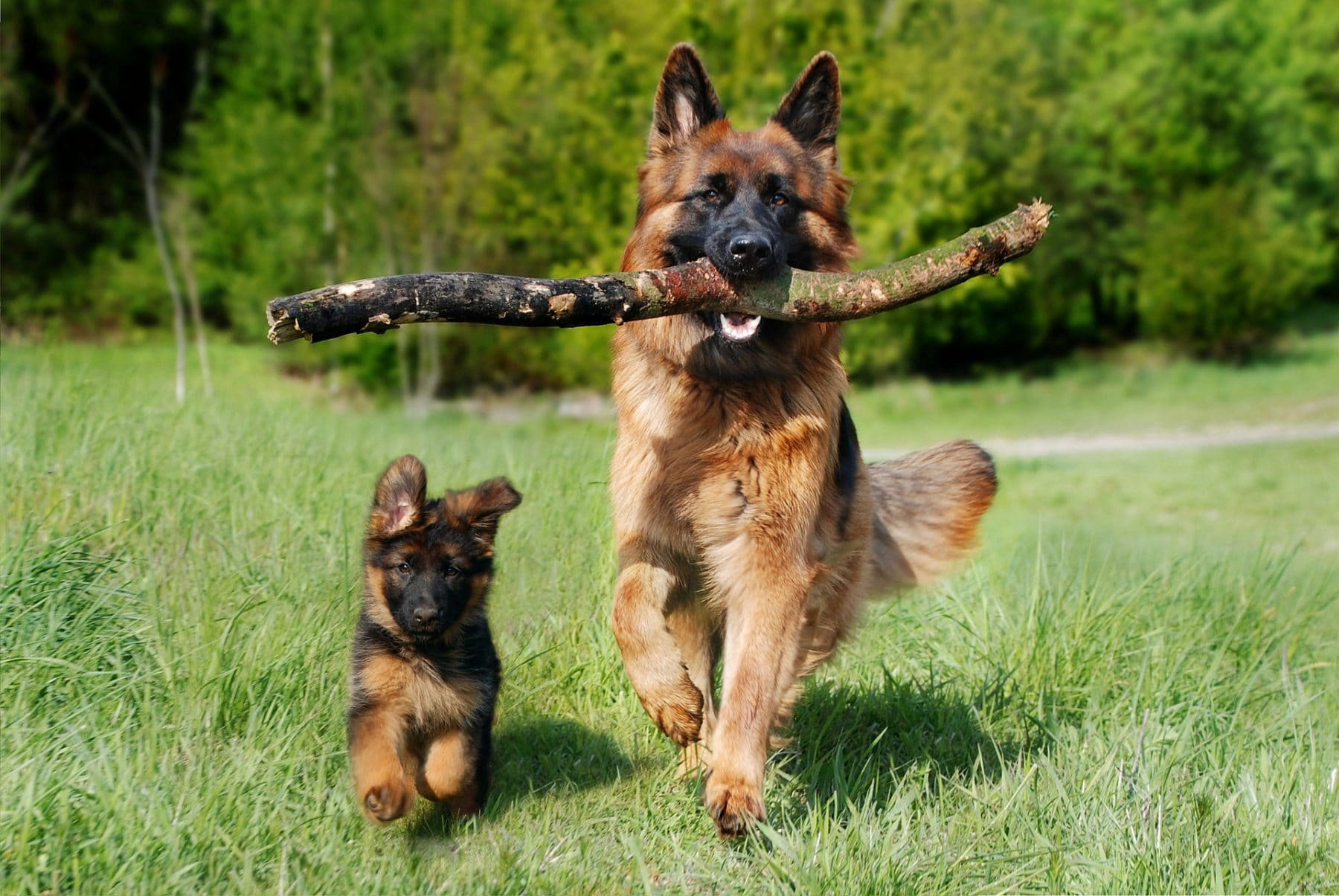
Most Popular Male Dog Names
Looking for the perfect dog name for your new male pup? We have created filterable lists of male dog names from our database of hundreds of thousands of Sniffspot users. You can filter by gender, breed and state to find the most cute, unique and creative male dog names.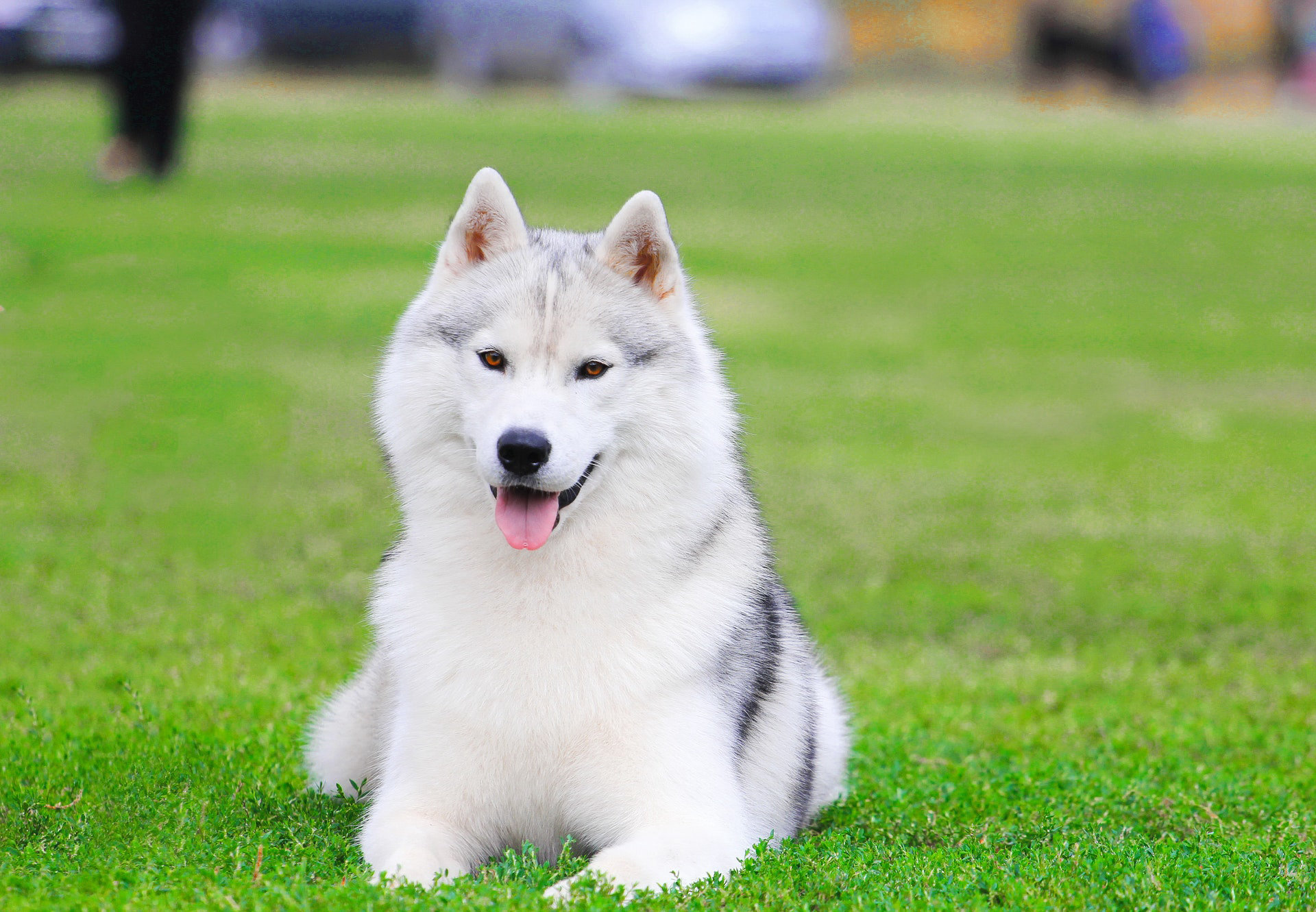
Most Popular Female Dog Names
Looking for the perfect dog name for your new female pup? We have created filterable lists of female dog names from our database of hundreds of thousands of Sniffspot users. You can filter by gender, breed and state to find the most cute, unique and creative female dog names.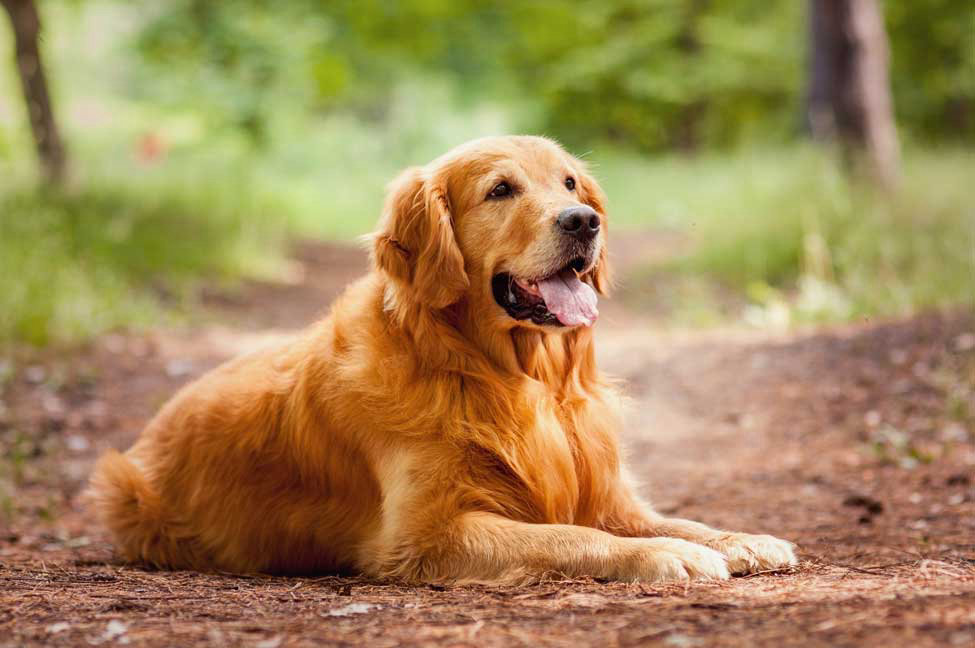
Most Popular Golden Retriever Names
Welcome to our comprehensive list of Golden Retriever dog names, curated from our vast database of Sniffspot users. Filter through hundreds of thousands of options by gender, breed, and state to discover the most adorable, original, and imaginative names for your beloved Golden Retriever.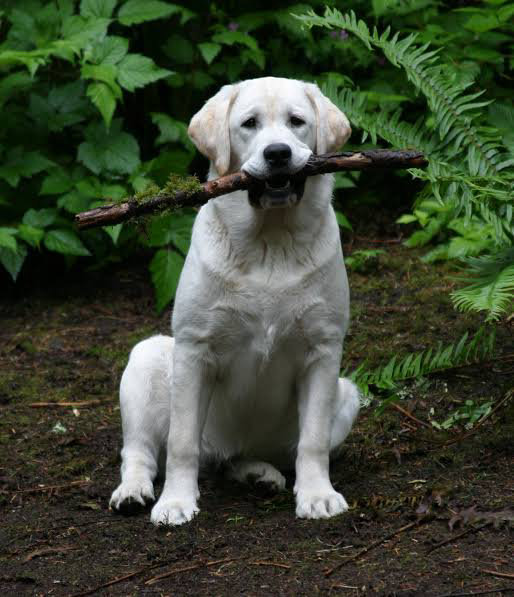
Most Popular Labrador Retriever Names
Welcome to our Labrador Retriever dog names page! Here you can browse through filterable lists of names for your beloved furry friend, ranging from cute and classic to unique and creative options. Our database of hundreds of thousands of Sniffspot users ensures you'll find the perfect name for your Labrador Retriever, whether you're seeking a name for a male or female, based on breed or state.
Top dog rescues in the US

The Best Washington Dog Rescues & Shelters in 2025
This list showcases the top dog rescues & shelters in Washington. These remarkable organizations have been recognized for their unwavering dedication to the well-being of countless dogs.
The Best Oregon Dog Rescues & Shelters in 2025
This list showcases the top dog rescues & shelters in Oregon. These remarkable organizations have been recognized for their unwavering dedication to the well-being of countless dogs.
The Best California Dog Rescues & Shelters in 2025
This list showcases the top dog rescues & shelters in California. These remarkable organizations have been recognized for their unwavering dedication to the well-being of countless dogs.
The Best Florida Dog Rescues & Shelters in 2025
This list showcases the top dog rescues & shelters in Florida. These remarkable organizations have been recognized for their unwavering dedication to the well-being of countless dogs.
The Best New York Dog Rescues & Shelters in 2025
This list showcases the top dog rescues & shelters in New York. These remarkable organizations have been recognized for their unwavering dedication to the well-being of countless dogs.










